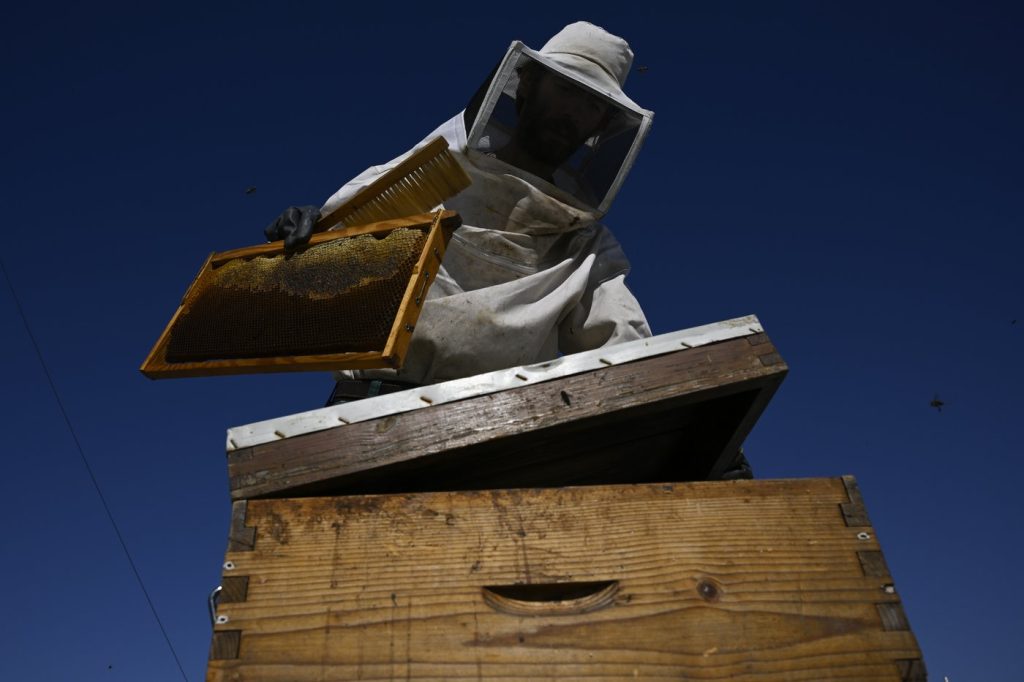ATHENS, Greece (AP) — Nikos Chatzilias spends his days tending to buzzing bee colonies atop the rooftops of Greece's capital. As part of a growing trend, he is one among many Athenians who have embraced urban beekeeping, a practice that not only supports local ecosystems but also offers a connection to nature and the enjoyment of honey infused with flavors from the surrounding flora.
At 37 years old, Chatzilias had been a fervent consumer of honey, often using it as a sweetener for breakfast and in various recipes. Dissatisfied with typical store-bought honey, he decided to produce his own by enrolling in beekeeping classes in 2020, quickly evolving into a professional beekeeper. "I saw that it worked really well for the hives. For us, the daily contact with the bees brought us a lot of joy, and that’s why we continued," he shared.
During the summer, Chatzilias managed 30 beehives situated on seven rooftops around Athens, including one that boasts a stunning view of the Parthenon. With approximately 1.2 million bees, his hives yielded around 500 kilograms (1,100 pounds) of honey, about the weight of a large brown bear. Each batch of honey is packaged and named after the neighborhood from which it originated.
The unique tastes of Athens honey can be attributed to the varying proportions of eucalyptus, acacia, and bitter orange found throughout the city, not to mention the influence of local flora. For instance, honey produced along the southern coast benefits from pine trees, providing a forest-like flavor profile.
Though urban beekeeping is not a new concept either globally or in Athens—where families historically brought hives from rural areas—Chatzilias perceives the current surge in interest as being more purposeful and tied to environmental consciousness, a sentiment that resonates throughout the community. His recent recruit, Aggelina Chatzistavrou, discovered her passion for bees during her university studies and relished the idea of owning her own hive. "If everyone could have a hive in an open space at their home, I believe it would change our environment in a big way," she commented from her rooftop overlooking the Acropolis.
Despite the keen interest in urban beekeeping, many aspiring beekeepers face opposition from other residents within their apartment buildings. The logistical challenges of transporting heavy beehives to rooftops and back down for winter often discourage potential beekeepers. Chatzilias noted that fears arising from living in urban environments—concerns about bee stings and allergies—can hinder people’s willingness to engage with bees. "For city people—because they have been cut off from nature for so many years—even something natural that happens can provoke fear," he explained.
Athens' ongoing cycles of flowering plants that are friendly to pollinators create an ideal backdrop for experimenting with keeping bees year-round on rooftops. "Even with a chaotic urban environment that we’ve created, nature—or whatever remains of it in the city—still responds and can give life," Chatzilias reflected, highlighting the harmony that can exist between urban living and nature.











